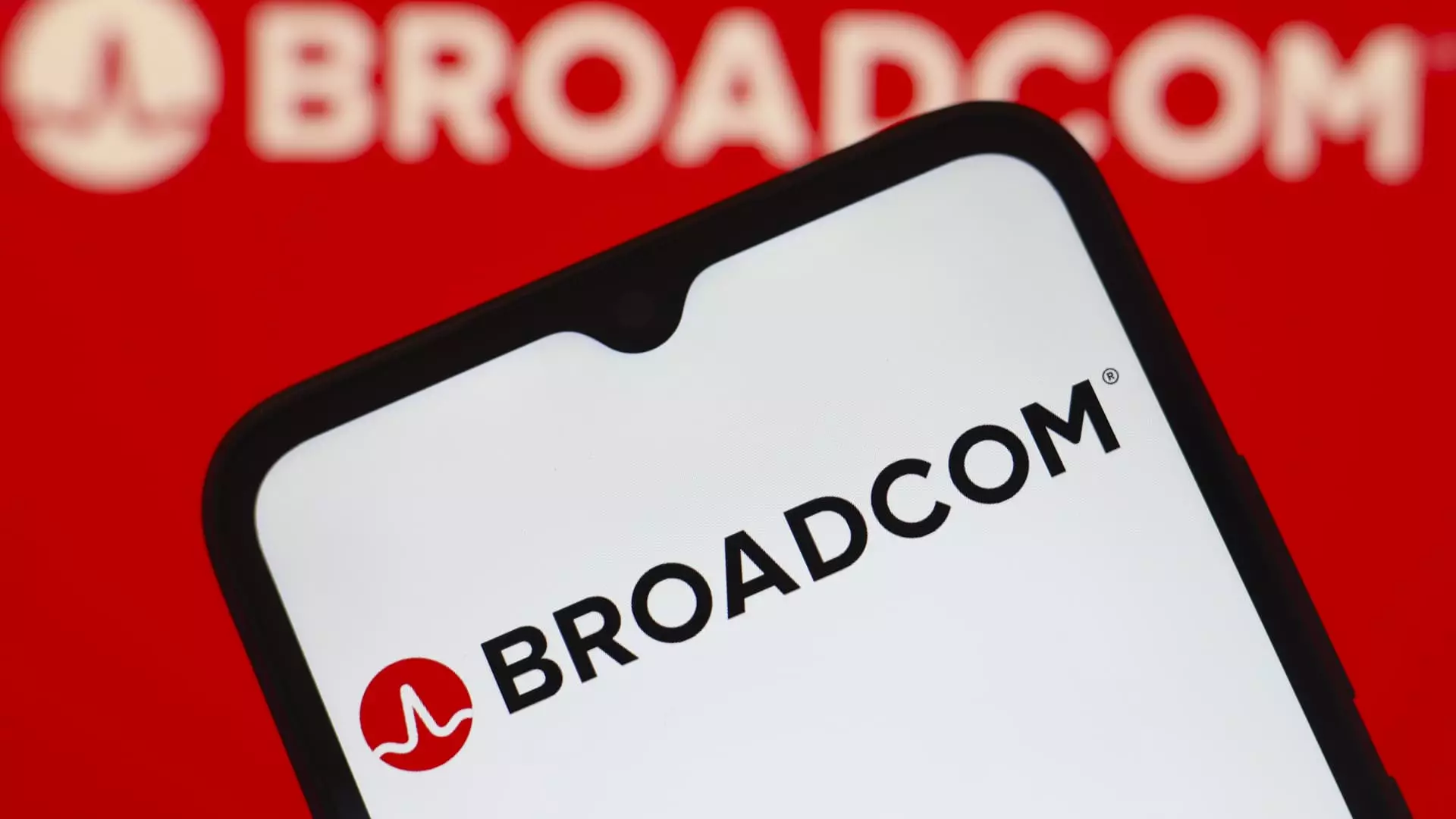On a seemingly ordinary Friday, U.S. stocks took a surprising leap, propelled by labor statistics that surpassed expectations. Nonfarm payrolls increased by 139,000 in May, a number that eclipsed the Dow Jones forecasts of 125,000. This unexpected surge in employment provided a momentary relief to an investor landscape fraught with anxiety over tariffs and the ever-looming threat of economic downturn. Jim Cramer’s exuberant observation that sometimes a labor report can “really thread the needle” encapsulates the market’s volatile relationship with economic indicators. This statement underscores a broader truth: the stock market often reacts not merely to numbers themselves, but to the narratives they construct.
Despite the optimistic news, it’s vital to scrutinize what this growth really entails. Are these numbers indicative of a robust economy, or are they simply a mirage obscuring deeper systemic issues? Despite the uptick, many corporations are still wrestling with the ramifications of a trade war, which complicates the picture considerably. It raises a pivotal question: Are we merely delaying the inevitable, or is there truly a sustainable recovery underway?
The Aftermath of Corporate Conflicts
Before the stock market could bask in the glory of bullish employment data, it was shaken by the tumultuous fallout of a very public feud between President Trump and Tesla’s CEO Elon Musk. It’s almost tragic how personal disputes at the highest echelons can reverberate through the market, affecting not just individual stocks but investor sentiment as a whole. The sharp decline in Tesla’s shares negatively affected the broader market, showcasing the fragile nature of investor confidence and the extent to which corporate dramas interfere with economic fundamentals.
It’s disconcerting to realize that a conflict between a president and a tech titan can induce market swings, thereby exposing the vulnerabilities within our investment ecosystem. The dependency of stock prices on external political theatrics raises alarms about the stability and maturity of our current economic structure. We need to ask ourselves whether we’re engaging in healthy capitalism or allowing sensationalist narratives to hijack our financial decision-making.
Broadcom’s Dilemma: A Positive Outlook Amidst Reevaluation
Broadcom, a key player in the semiconductor sector, experienced a decline of over 2% following a robust quarterly earnings report. This paradox illustrates a significant trend in the investment world: the concept of profit-taking. New investors are urged to seize the opportunity to buy into Broadcom, reflecting Cramer’s belief in its long-term potential despite short-term turbulence.
It’s a curious phenomenon—impressive earnings can sometimes lead to stock price drops. It raises questions about the relationship between immediate performance and future expectations. Investors must discern whether these fluctuations signal an impending slump or simply a momentary shift in perception. Cramer’s endorsement of Broadcom points toward a larger narrative of faith in technological innovation, despite the erratic nature of stock performance over shorter time frames. The real challenge lies in balancing enthusiasm with caution.
Apple’s Upcoming Revelation or Another Letdown?
The anticipation surrounding Apple’s annual worldwide developer conference provides an intriguing backdrop as investors hold their breath for news about its generative artificial intelligence system, aptly named Apple Intelligence. Given the mixed reviews surrounding previous AI rollouts, including a particularly disastrous iteration of Siri, there’s palpable skepticism in the air.
Yet, that skepticism is juxtaposed with a glimmer of hope. Cramer suggests that Apple shares may have the capacity to “bounce,” implying that the company is not as crippled by its recent setbacks as some might believe. The forthcoming conference serves as a litmus test for Apple’s commitment to innovation and adaptability in a rapid-fire tech environment. It’s a crucial moment—one where Apple can either validate investor confidence or further the narrative of stagnation and missed opportunities.
This impending revelation reveals a deeper commentary on the tech industry as a whole. The race to innovate feels more crucial than ever, as companies are no longer only competing for market share, but also for relevance in a rapidly changing digital landscape. Therefore, the stakes are astronomically high for Apple.
In the opulent world of Wall Street where every tick of a stock can send ripples, the underlying sentiments drive the psyche of investors. A chaotic blend of hope and skepticism prevails, reminding us that while numbers may tell one story, the human element—the emotions, conflicts, and aspirations behind investment decisions—renders a more complex, nuanced narrative.


Leave a Reply